Games of the Year: Part 3, 1994-1998
By TheKidNixon 1 Comments
Hey there game fans! Welcome to another sparsely read collection of the best video game for every year from 1984 to 2009. Refresh on parts one and two if you'd like. Today, we look at the mid-90s.
Before I get started with the official list, I feel it is important to point out that this is the hardest five I've done so far. This time period seems to be a really halcyon moment for gaming, with the twilight of the 16-bit era creating final masterpieces and the dawn of 3D offering a bold new vision and direction for the future. It is a time of transition, both from the old and into the new. Thus there are quite a few games that aren't on this list that are crucial to the development of gaming: Half-Life, Warcraft 1 and 2, Starcraft, Diablo, Final Fantasy VI and VII, Tomb Raider, Baldur's Gate, Ocarina of Time and several more that I just don't have time to mention. 97 and 98 in particular were especially hard, as they were the years that the Playstation came into its own and redefined the landscape of games. But as the rules clearly state, there can be only one winner for every year. So here we go.
1994
Super Metroid (SNES)
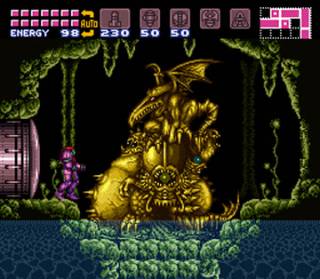
1995
Chrono Trigger (SNES)
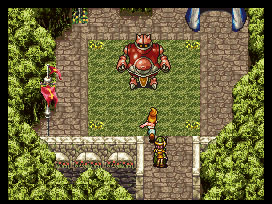
A co-worker of mine is currently playing through Chrono Trigger for the first time on his DS. Through him, I am reliving how many moments of that game are so expertly crafted and realized. The game is constantly watching and reacting to your actions, allowing you to feel as if your every decision has an ultimate price and purpose. The refinement of the active battle system allows a streamlineed and constantly entertaining JRPG battle experience, enhanced even more by the Techs systems. But it was the use of time travel that set Chrono Trigger's experience apart, offering differing worlds to explore from familiar but tweaked environments. Add the fact that these worlds looked fantastic, pushing the SNES to its outer limits. With branching storylines and the NewGame+ feature, Chrono Trigger was a loving gift from Squaresoft for long-time 16-bit RPG fans.
1996
Super Mario 64 (Nintendo 64)
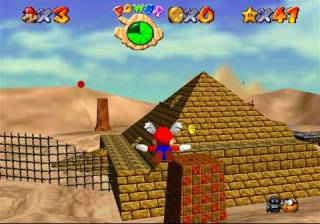
1997
Castlevania: Symphony of the Night (Playstation)
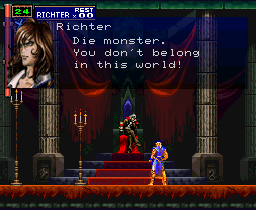
Given my already stated love of Castlevania and near cultish worship of Super Metroid, this selection shouldn't really be a surprise. But to call Symphony of the Night merely a Metroid clone misses some of the real enjoyment of the game. Take for instance the opening moments of the game, which replay the end of Dracula: Rondo of Blood, the last side-scrolling traditional game of the series before Symphony. It serves as a reminder of the mechanics that the game had always operated within and also provides a view into the bombastic narrative the game lovingly embraces. But moments later, you discover that this isn't Richter's game, but Alucard's, Dracula's vampire son who first appeared in Castlevania III. Thus, you have no access to the Vampire Killer, and while you start with amazing powers, Death strips you pretty quickly of those as well. The sense of discovery as the game progresses only goes deeper and deeper, encouraging and rewarding exploration. Different weapons have benefits and draw-backs. Screen-filling enemy fights frighten and disgust. By the time the game literally flips everything upside down, you've learned to expect anything. While Metroid is a much tighter and more emotionally satisfying experience, the level of shock, both from the grotesque and the unexpected, in Symphony made it both a game of established traditions and a new creation for the next generation. It was at once familiar and unknown, like the archetypal monsters that wander Dracula's haven.
1998
Metal Gear Solid (Playstation)
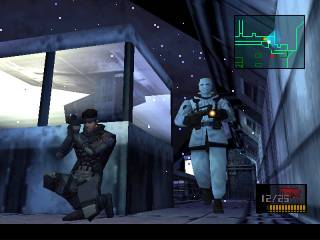
So what do you think? Did I snub Cloud? Am I a heathen for not mentioning a single Blizzard game? And why do I love Konami so much? We're done for now, but get all your seething out before we come back next week where we'll lurch ever closer to the present. We move into the new century/millennium, as well as some upstart Microsoft entering the console business.
